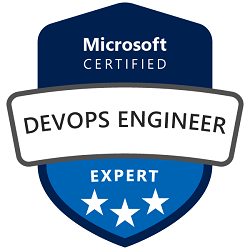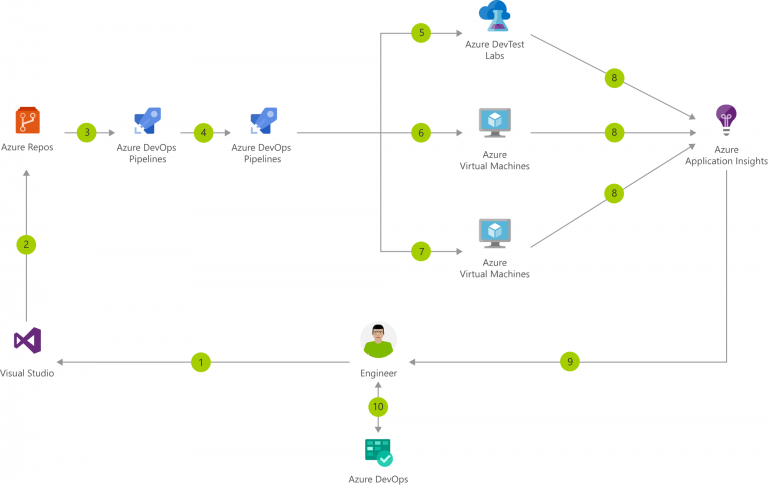Designing and Implementing DevOps solutions AZ-400

The AZ-400 Designing and Implementing DevOps Solutions course is an advanced training program that focuses on designing and implementing DevOps solutions using Microsoft Azure. This course is intended for participants who have experience with Microsoft Azure cloud services and want to deepen their skills in building and managing efficient and scalable DevOps solutions on Azure. During the course, participants will learn how to design and implement DevOps processes and practices that enable continuous integration and deployment, configuration management, team collaboration, and application performance monitoring. They will also explore how to use Azure tools and services, such as Azure DevOps, Azure Pipelines, Azure Repos, and Azure Monitor, to support the DevOps lifecycle. Participants will gain skills in designing and configuring infrastructure as code, implementing automated tests, and monitoring application performance in real time. Additionally, they will learn to identify areas for improvement, resolve issues, and adopt best practices to improve the efficiency and quality of DevOps solutions. Upon completion of the course, participants will have a solid understanding of DevOps solutions on Azure and will be ready to undertake more advanced learning and certification paths in the field of DevOps solutions on Azure. The course contributes to the preparation of the Microsoft DevOps Engineer Expert Certification exam
Course Objectives
Below is a summary of the main objectives of the Designing and Implementing DevOps Solutions AZ-400 Course :
- Design and implement DevOps processes and practices.
- Use Azure tools and services to support the DevOps lifecycle.
- Design and configure infrastructure as code.
- Implement automated testing and performance monitoring.
- Solve problems and adopt best practices for DevOps solutions.
- Manage source control with Git and Azure Repos.
- Implement continuous integration and continuous delivery (CI/CD) pipelines.
- Configure and manage containerized applications using Azure Kubernetes Service (AKS).
Course Certification
This course helps you prepare to take the:
AZ-400 Microsoft DevOps Engineer Expert Exam ;
Course Outline
Configure activity traceability and flow of work
- Plan and implement a structure for the flow of work and feedback cycles
- Identify appropriate metrics related to flow of work, such as cycle times, time to recovery, and lead time
- Integrate Azure Pipelines and GitHub Actions with work item tracking tools
- Implement traceability policies decided by development
- Integrate a repository with Azure Boards
Configure collaboration and communication
- Communicate actionable information by using custom dashboards in Azure Boards
- Document a project by using tools, such as wikis and process diagrams
- Configure release documentation, including release notes and API documentation
- Automate creation of documentation from Git history
- Configure notifications by using webhooks
Design and implement a source control strategy
- Design and implement an authentication strategy
- Design a strategy for managing large files, including Git Large File Storage (LFS) and git-fat
- Design a strategy for scaling and optimizing a Git repository, including Scalar and cross-repository sharing
- Implement workflow hooks
Plan and implement branching strategies for the source code
- Design a branch strategy, including trunk-based, feature branch, and release branch
- Design and implement a pull request workflow by using branch policies and branch protections
- Implement branch merging restrictions by using branch policies and branch protections
Configure and manage repositories
- Integrate GitHub repositories with Azure Pipelines
- Configure permissions in the source control repository
- Configure tags to organize the source control repository
- Recover data by using Git commands
- Purge data from source control
Design and implement pipeline automation
- Integrate pipelines with external tools, including dependency scanning, security scanning, and code coverage
- Design and implement quality and release gates, including security and governance
- Design integration of automated tests into pipelines
- Design and implement a comprehensive testing strategy (including local tests, unit tests, integration tests, and load tests)
- Design and implement UI testing
- Implement orchestration of tools, such as GitHub Actions and Azure Pipelines
Design and implement a package management strategy
- Design a package management implementation that uses Azure Artifacts, GitHub Packages, NuGet, and npm
- Design and implement package feeds, including upstream sources
- Design and implement a dependency versioning strategy for code assets and packages, including semantic versioning and date-based
- Design and implement a versioning strategy for pipeline artifacts
Design and implement pipelines
- Select a deployment automation solution, including GitHub Actions and Azure Pipelines
- Design and implement an agent infrastructure, including cost, tool selection, licenses, connectivity, and maintainability
- Develop and implement pipeline trigger rules
- Develop pipelines, including classic and YAML
- Design and implement a strategy for job execution order, including parallelism and multi-stage
- Develop complex pipeline scenarios, such as containerized agents and hybrid
- Configure and manage self-hosted agents, including virtual machine (VM) templates and containerization
- Create reusable pipeline elements, including YAML templates, task groups, variables, and variable groups
- Design and implement checks and approvals by using YAML environments
Design and implement deployments
- Design a deployment strategy, including blue/green, canary, ring, progressive exposure, feature flags, and A/B testing
- Design a pipeline to ensure reliable order of dependency deployments
- Plan for minimizing downtime during deployments by using virtual IP address (VIP) swap, load balancer, and rolling deployments
- Design a hotfix path plan for responding to high-priority code fixes
- Implement load balancing for deployment, including Azure Traffic Manager and the Web Apps feature of Azure App Service
- Implement feature flags by using Azure App Configuration Feature Manager
- Implement application deployment by using containers, binary, and scripts
Design and implement infrastructure as code (IaC)
- Recommend a configuration management technology for application infrastructure
- Implement a configuration management strategy for application infrastructure, including IaC
- Define an IaC strategy, including source control and automation of testing and deployment
- Design and implement desired state configuration for environments, including Azure Automation State Configuration, Azure Resource Manager, Bicep, and Azure Automanage Machine Configuration
- Design and implement Azure Deployment Environments for on-demand self-deployment
Maintain pipelines
- Monitor pipeline health, including failure rate, duration, and flaky tests
- Optimize pipelines for cost, time, performance, and reliability
- Analyze pipeline load to determine agent configuration and capacity
- Design and implement a retention strategy for pipeline artifacts and dependencies
Design and implement a strategy for managing sensitive information in automation
- Implement and manage service connections
- Implement and manage personal access tokens
- Implement and manage secrets, keys, and certificates by using Azure Key Vault, GitHub secrets, and Azure Pipelines secrets
- Design and implement a strategy for managing sensitive files during deployment
- Design pipelines to prevent leakage of sensitive information
Automate security and compliance scanning
- Automate analysis of source code by using GitHub code scanning, GitHub secrets scanning, pipeline-based scans, and SonarQube
- Automate security scanning, including container scanning and OWASP Zed Attack Proxy (ZAP)
- Automate analysis of licensing, vulnerabilities, and versioning of open-source components by using Mend Bolt and GitHub Dependency Scanning
Configure monitoring for a DevOps environment
- Configure and integrate monitoring by using Azure Monitor
- Configure and integrate with monitoring tools, such as Azure Monitor, Application Insights, and the Prometheus managed service
- Manage access control to the monitoring platform
- Configure alerts for pipeline events
Analyze metrics
- Inspect distributed tracing by using Application Insights
- Inspect application performance indicators
- Inspect infrastructure performance indicators, including CPU, memory, disk, and network
- Identify and monitor metrics for business value
- Analyze usage metrics by using Application Insights
- Interrogate logs using basic Kusto Query Language (KQL) queries
Course Mode
Instructor-Led Remote Live Classroom Training;
Trainers
Trainers are authorized Instructors in Microsoft and certified in other IT technologies, with years of hands-on experience in the industry and in Training.
Lab Topology
For all types of delivery, the participant can access the equipment and actual systems in our laboratories or directly in international data centers remotely, 24/7. Each participant has access to implement various configurations, Thus immediately applying the theory learned. Below are some scenarios drawn from laboratory activities.

Course Details
Course Prerequisites
Attendance at the Azure Administrator Course is recommended .
Course Duration
Intensive duration 5 days;
Course Frequency
Course Duration: 5 days (9.00 to 17.00) - Ask for other types of attendance.
Course Date
- Designing and Implementing DevOps solutions Course (Intensive Formula) – On request – 09:00 – 17:00
Steps to Enroll
Registration takes place by asking to be contacted from the following link, or by contacting the office at the international number +355 45 301 313 or by sending a request to the email info@hadartraining.com


